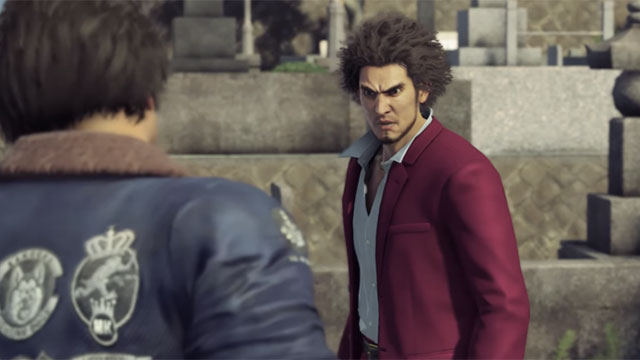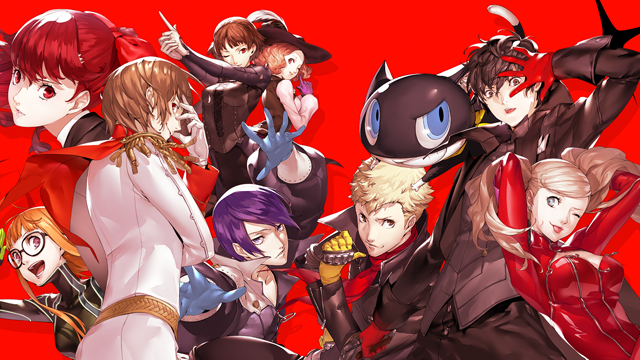The opening months of 2020 is filled with some highly anticipated titles finally being released but with an important caveat: the titles are only coming out in Japan. From the turn-based Yakuza 7 to Granblue Fantasy Versus and Persona 5 Scramble, we’re seeing highly successful series have staggered launches worldwide. On top of that, we’re also seeing games like Persona 5 Royal finally come out in the west after having fans wait half a year.
With how social gaming is, and a number of English speaking fans that import new releases since consoles are region free, that means players have to try to dodge spoilers for months on end if they want to enjoy the games fully. Without worldwide releases, it’s far too easy for an important or hilarious moment to be spoiled even if you are muting every word and hashtag applicable to one of these games.
While this is annoying, all the complaints are pretty minor in the grand scheme of things as gaming used to be much more regionalized than it currently is. It wasn’t uncommon for games to get drastically changed during localization (back when that was a valid complaint rather than people screaming about a lack of “vagina bones“), such as an early Dragon Ball game coming to the United States as Dragon Power or Masked Ninja Hanamar being transformed into the Domino’s advertgame classic Yo! Noid. In fact, players were often lucky to receive a game at all as many classics stayed in their respective area and never saw a worldwide release.
ALSO: MAG was one of the most ambitious shooters ever and deserves a PS5 sequel
Clearly the gaming scene has made a ton of progress when it comes to both localization and global releases, but there are still many areas where they can improve. Considering how popular all of the aforementioned series are, there really is no reason for the publishers not to be pursuing a worldwide release. It’s understandable when a small team working with separate publishers worldwide can’t release simultaneously, less so when it’s being done by an experienced publisher like Sega that can afford to employ a large localization team throughout development.
A look at 2020’s worldwide release issues so far

The most notable release to only come out in Japan so far in 2020 is Ryu ga Gotoku Studio’s Yakuza 7, which is releasing in the west as Yakuza: Like A Dragon. Despite releasing on Jan 17, 2020, in its native Japan, the game has no worldwide release date beyond it being later this year.
Since the Yakuza series is filled with hilarious moments, I’ve seen the Japanese version on Twitter countless times since then. These aren’t key plot points being ruined, but I have had some surprises spoiled and seen a lot of content that I would have rather experienced on my own as a result.
Earlier this year, Yakuza localization lead Scott Strichart had to make a plea on Twitter to some of the series’ biggest fans and supporters. “For the importers, please enjoy responsibly,” asked Strichart. “Tag your spoilers, make separate channels, keep video titles vague! There are a lot of awesome moments and nobody wants them ruined.” He also told those waiting to mute terms and recognized how ridiculous the situation is. “Plan for things to hit the internet sooner than launch, even if they don’t. I’m sorry you’re even in this position, but I swear we are workin’ on it.”
Another tiered worldwide launch is being done by Atlus, which is another Sega-owned entity. Persona 5 Royal is finally releasing in North America and Europe on March 31, 2020, but came out last year on Halloween in Japan. This staggered launch has only hurt the worldwide release as reception among importers have been mixed on the enhanced version of Persona 5, and it’s releasing at a busier time compared to the holidays where many gamers have more free time to spend on a lengthy RPG. If it had been released simultaneously, and there’s less work to do here than on the original since the new content is limited in scale, these issues could have been avoided.
Worldwide releases are possible for Japanese games and Square Enix shows how

While doing a worldwide launch for any game is difficult, text-heavy role-playing games can be notably hard to pull off. However, it can be done and Square Enix is a shining example of how it’s done the right way most of the time. One of their most impressive feats has been keeping Final Fantasy 14 up to date and English localization lead John Crow explained the perks of their in-house translation system when I spoke with him in 2018.
“[Main scenario writer Natsuko Ishikawa] sits not too far from me anyway. So, [I can] get the text at various states of being finalized or not,” explained Crow. “At any point if we come across something where we’re at all unsure about, either the intention of this line or the lore behind something, we can always go directly to the scenario team and be like, ‘Can you clarify this? Can you tell me like what are you going for here or what does this mean?’ and get that information so that if we do decide to take this in a different direction, that’s with full knowledge of what the source is trying to do.”
It’s important to note that this isn’t a problem of writers and translators taking too long or being slow with their work. They are not to blame at all for worldwide releases not happening. The issue is that they’re not more involved with the development cycle throughout and are often brought in at later stages by the publisher. As Square Enix and other large studios show, it’s possible for Japanese games to be launched simultaneously if the organizational structure and resources will allow it to do so.
While worldwide launches are not a reality for many Japanese studios at the moment, it’s clear that more publishers understand the importance of releasing everywhere on one date. For now, fans of Japanese gaming will have to wait for incredible localization leads like Strichart to play catch-up on games like Yakuza: Like A Dragon and will have to dodge spoilers online. It will get better, though, and hopefully this isn’t an issue with major releases in a decade from now.











